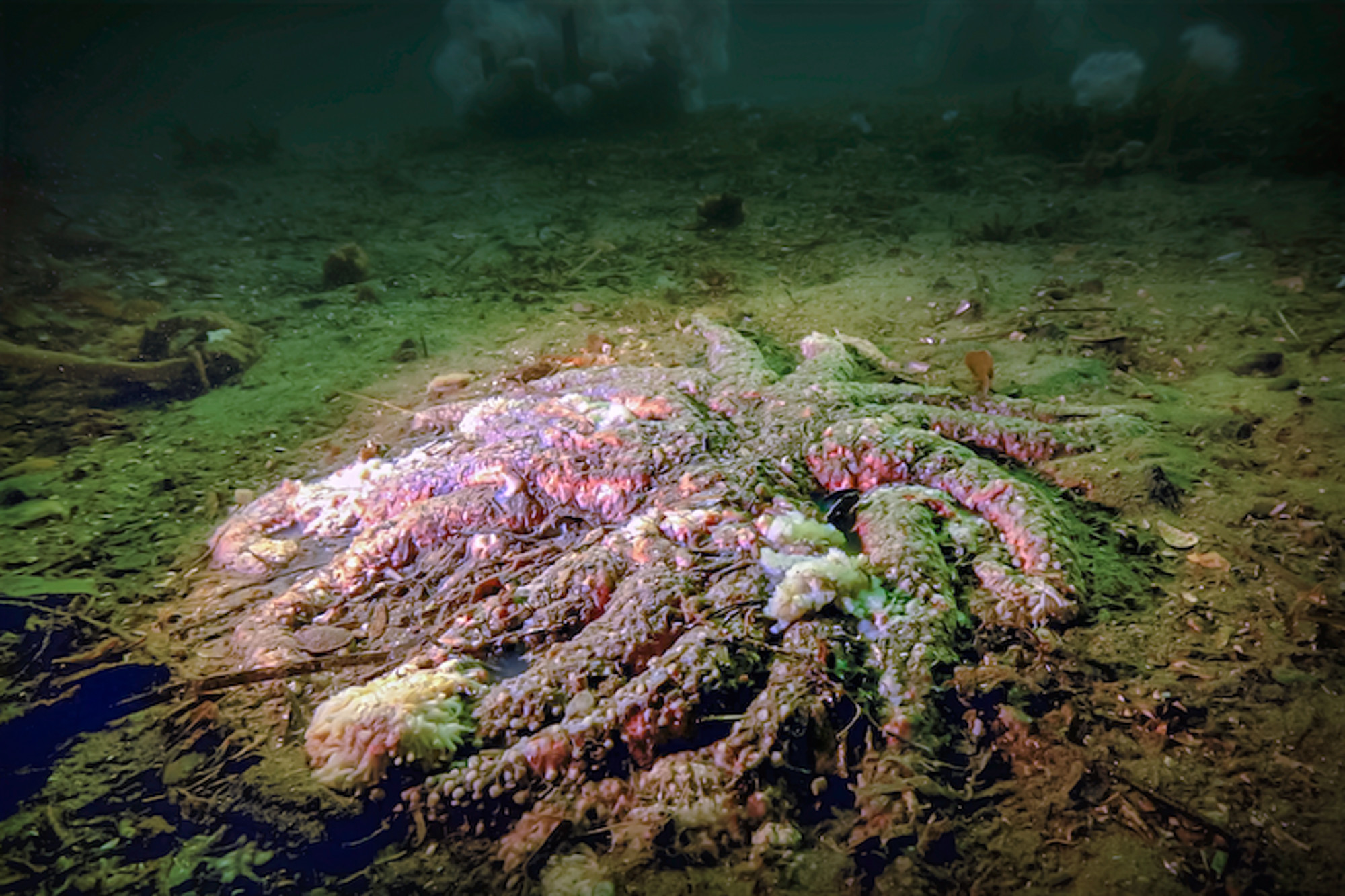Scientists Discover the Cause of Sea Star Wasting Disease
After a challenging four-year investigation, researchers from the Hakai Institute, the University of British Columbia, the University of Washington, and the US Geological Survey’s Western Fisheries Research Center have revealed the cause of sea star wasting disease (SSWD): a strain of the bacterium Vibrio pectenicida. This breakthrough finding has been covered by the Associated Press, bioGraphic, Canadian Press, Canada’s National Observer, CBC, The Guardian, the New York Times, Science, the Washington Post, and many more outlets around the world, including radio programs and TV stations. Congratulations to the Hakai Institute researchers involved with this groundbreaking work: Alyssa Gehman, Melanie Prentice, Carolyn Prentice, Colleen Kellogg, and Rute Clemente Carvalho!
Pacific Coast Tidal Wetlands Store Vast Amounts of Carbon, New Study Confirms
Recent findings from Hakai Institute researchers Margot Hessing-Lewis and Carolyn Prentice that showcase the carbon-storing potential of tidal swamps in the Pacific Northwest were featured in a piece from the Pew Charitable Trusts.
Can Kelp Forests Help Tackle Climate Change?
The first national assessment of Canada’s kelp forests and their role as blue carbon sinks is based on a collaborative study involving Hakai Institute researchers. Read about the study in The Conversation.
Researchers Aim to Fill Data Gaps about Dungeness Crabs Amid Concerns of Declining Populations
The CBC highlights the Hakai Institute’s 10-year Sentinels of Change research project that’s investigating Dungeness crab populations from Prince Rupert, British Columbia, to Puget Sound, Washington.
BC Glaciers are Disappearing at a Record Pace
Hakai Institute scientist and University of Northern British Columbia professor Brian Menounos recently led a global study revealing that glaciers in the western United States and Canada have lost nearly one-quarter of their volume since 2000—and 12 percent in just the past four years. This story was picked up by The Tyee, Canadian Press, and Canada’s National Observer, among others.
Clams on Canada’s Broken Group Islands are Thriving
Technology Networks recently covered a new study led by Hakai Institute researcher Kristina Barclay. It examines how crab scars on clamshells in the Broken Group Islands of British Columbia demonstrate shellfish resilience and the sustainable relationship between Indigenous peoples and shellfish over millennia.
BC Sunflower Sea Stars are Now Endangered, but a Ray of Hope Remains
The Committee on the Status of Endangered Wildlife in Canada (COSEWIC) has assessed sunflower sea stars (Pycnopodia helianthoides) as endangered. An article by Canada’s National Observer shows some rays of hope for sunflower sea stars if they’re similarly assessed under Canada’s Species at Risk Act, which could help with funding and recovery planning.
The BC Coast is a Story of Extremes
Our partners at Pacific DataStream—an open-access platform for sharing water quality data in the British Columbia and Yukon regions—recently wrote a spotlight on the Hakai Institute’s groundbreaking work monitoring freshwater runoff along the BC coast. The piece demonstrates how this watershed data is helping to illuminate the region’s complex land-sea connections.
The Tombolo in Bloom
Hakai Institute cofounders Christina Munck and Eric Peterson are profiled in the Watershed Sentinel for the institute’s sustainable facilities, including greenhouses of fresh fruits, vegetables, and herbs.
